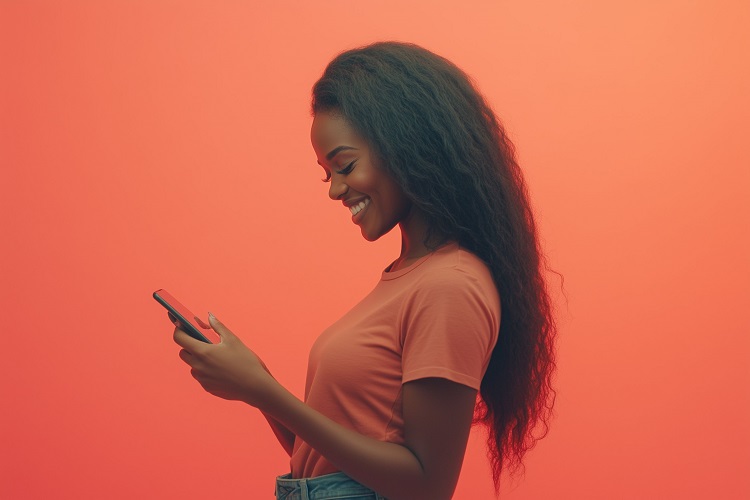
Ten years ago, we trusted dating apps almost blindly: like — match — chat — meet. At first, everything seemed simple, but as time went on, the digital world became more complicated, and the issue of trust became more and more important. These days, people want to know more than just a name and a photo when they’re looking for a potential partner. It’s crucial for them to know if they’re dealing with someone genuine or a skilled manipulator who sees relationships as a game.
That’s why the online dating industry is seeing a surge in transparency. Not only are compatibility algorithms becoming more important, but values, responsibility, and even financial openness are becoming important too. At the end of the day, if before the main thing was “sincere eyes” in a photo, now it’s about being honest and respecting others, both in words and actions.
The numbers show that trust is now the top priority
According to Business of Apps, more than 364 million people worldwide used dating apps in 2024, and the industry made $6.18 billion.
But even though the audience has grown overall, some services have seen a drop in users. This could mean that users are getting more picky about service quality and how transparent companies are being with them.
Financial transparency is a new trend in relationships
These days, dating apps are about more than just connecting people based on shared interests. They’ve turned into places where it’s crucial to show that you’re trustworthy. After a while, people are sick and tired of the fake profiles and bios. Attractive profiles are being replaced by verified profiles, identity verification, and even reliability rating systems.
Some start-ups are trying out the idea of voluntarily sharing basic financial info, like confirmed employment status or credit rating. The goal isn’t to turn a date into an accounting reconciliation, but to build trust between people meeting for the first time.
There’s a new understanding of transparency emerging — one that’s not intrusive, but conscious. People want to feel safe, not like they’re being watched all the time. Apps are learning to strike a balance: give users the chance to be themselves without losing their sense of security.
When feelings take priority over profiles, video chats become key
Texting isn’t the only way to connect with people these days. People are choosing chat roulette more and more to see their conversation partner’s real emotions and make sure that there’s a real person behind the screen, not a bot.
Online video chats with a random connection feature are all the rage these days — they’re fun and you get to meet people from all over. Shagle and CooMeet are two of the most popular ones.
Shagle lets you video chat with users from all over with just one click. It’s easy: turn on your camera and in a second you’ll have a new conversation partner. CooMeet is a site like Shagle, but it’s more about having safe and respectful conversations. It has a verification system that makes sure men only talk to real girls, so there are fewer fakes.
These kinds of cam chats have become a popular alternative to classic dating apps. They make you feel like you’re communicating in real time, which is pretty rare these days with all the filters and template phrases. When you see a smile or hear laughter from someone, trust comes naturally.
Transparency is also important here. Users want to be sure that their personal data and videos won’t end up in the wrong hands. That’s why platforms are starting to use encryption systems, automatic deletion of recordings, and a zero-tolerance policy for inappropriate behavior.
Trust without masks
It’s pretty obvious that digital communication is becoming more and more like real life. People want honesty, and they’re willing to pay for it, even if it costs them something. Publicity always has its risks, but you can’t build trust without it.
Psychologists have noticed that most people these days like it when things are more realistic. They want to see their partner for who they really are, with all their fears, awkwardness, and quirks. This is what makes communication real. The more transparent the dating process becomes, the higher the chance that relationships that started online will survive offline.
What lies ahead
The next step is to integrate technologies that will allow us to understand people’s emotions and intentions even more accurately. AI is learning to recognize moods from facial expressions and voice, helping users avoid toxic encounters. Maybe soon there will be apps that not only look for matches based on interests, but also suggest how comfortable you are with a person during a one-on-one video chat.
But no matter how tech-savvy the services become, there’s one thing that stays the same: trust can’t be programmed. It’s created by people through their openness, respect, and sincerity. If new tools make this path shorter, then technology finally serves love, and not the other way around.
Instead of an epilogue
Online dating has entered a new era. These days, it’s not enough to just be liked — you have to be honest. It’s not because the algorithms say so, but because it’s the only way to build something real.
Transparency isn’t a problem anymore — it’s the key to building trust. Maybe that’s how we’ll keep our humanity in the digital world, where every still image has a real person behind it.

